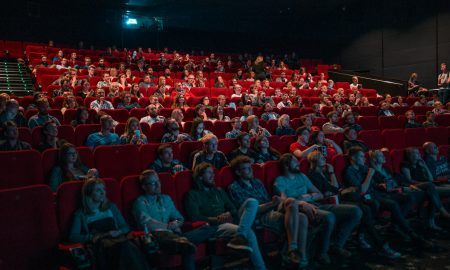
Here’s Why Psychedelic Healing Doesn’t Need Big Pharma

Community is the heart of real psychedelic healing. Not sterile clinics. Not white lab coats. And, of course, not a billion-dollar pharma brand pushing synthetic psilocybin. In Colorado, people are doing it differently. And it is working.
Back in 2022, Colorado passed the Natural Medicine Health Act. Instead of boxing psychedelics into the same system that has failed millions, this law carved out a new path. It opened the door for facilitators, not just doctors, to guide healing. That means more voices, more experiences, and less red tape. Community-led healing circles and spiritual centers are popping up.
The big idea behind the Act? Healing is not one-size-fits-all. Psychedelics don’t need to be crammed into strict clinical models. Instead, the law backs ceremonial, spiritual, and therapeutic spaces. It honors Indigenous wisdom, lived experience, and peer-led support. That kind of diversity can’t be patented, which is exactly why Big Pharma sees it as a threat.
The Synthetic Push and Its Risks
Now the pressure is building. A recent bill, House Bill 25-1063, pushes for synthetic psilocybin. Think lab-made, patent-ready, and profit-focused. This move mirrors what happened with cannabis. Big companies took over, and suddenly the plant lost its roots. That is what is at stake here, too. Synthetic psychedelics could drown out the natural ones, pushing aside centuries of traditional use and community-based care.

Freepik / Psychedelic therapy is more about connection, trust, and preparation.
Factory-style dosing, where you show up for a trip and leave with no follow-up, misses the point. These experiences can shake your soul. People need help making sense of them. They need preparation before and support after. That is not profitable, so Big Pharma ignores it.
What Industrial-Scale Therapy Gets Wrong?
Standardized treatments also ignore the real causes of pain. Depression isn’t just a brain glitch. Anxiety doesn’t always come from faulty wiring. Many people suffer because of social, racial, or environmental stress. These are not medical problems. Rather, they are community problems. But the pharma model treats everyone like a patient instead of a person. That strips psychedelics of their deeper power.
Control is another issue. Traditional psychiatry often puts power in the hands of professionals, mostly male, mostly white. This creates a top-down system that can feel cold and clinical. Psychedelics are supposed to be different. They work by opening people up, not boxing them in.
Colorado’s grassroots scene is showing what is possible. Healing circles led by peers, Indigenous-led ceremonies, and support networks that center equity are already thriving. These models are relational, not transactional. People share stories, hold space, and grow together.
This is where psychedelics shine, when they help us reconnect. Not just with ourselves, but with each other, with the earth, and with something greater than us. That kind of connection can’t be bottled or branded. It happens in a community, not in a clinic backed by shareholders.

Freepik / Big Pharma sees psychedelics as the next cash cow. But psychedelics aren’t pills you take to dull pain.
They are experiences that can show you what is underneath. They teach. They reveal. And they demand care. When that care is community-based, it is more honest, more flexible, and more human.
However, there is hope. In Colorado and beyond, people are fighting to protect this sacred space. They are organizing, educating, and building systems that honor the full story of these medicines. That includes science, but it also includes spirit.
More inCommunity
-
`
Latkes vs. Kugel: 5 Key Differences for Food Lovers
If you have ever found yourself at a Jewish holiday table staring at two dishes that seem oddly familiar, crispy potato...
October 9, 2025 -
`
Urban Homesteading is the New Lifestyle Shift to Adopt in 2025
Homesteading used to mean acres of land, barns, and tractors. Not anymore. In 2025, a growing number of city folks are...
October 2, 2025 -
`
5 Ways Community Theatres Can Help the World Unite
Community theatres aren’t just putting on plays. They are doing something much bigger. In a world full of division and noise,...
September 25, 2025 -
`
5 Psychology-Backed Reasons Why Beaches Feel So Calm
Beaches have this quiet superpower. You show up tense, tired, maybe burned out. Then the waves hit your ears, the breeze...
September 20, 2025 -
`
Why Burgundy Is the Best Place to Visit for French Cuisine
Burgundy is not just another region in France. It is a way of eating, drinking, and living. The food here is...
September 12, 2025 -
`
Pamela Anderson ‘Outshines’ Arch Rival Meghan Markle in Lifestyle Branding
Pamela Anderson is making pickles now, and somehow, she is doing it better than Meghan Markle. Yes, Pamela Anderson, the “Baywatch”...
September 5, 2025 -
`
LGBTQI+ Rights Under Threat from Federal Rollbacks
LGBTQ+ communities across the U.S. are feeling the pressure. Since January 20, 2025, a wave of federal rollbacks has hit hard,...
August 30, 2025 -
`
How Will the 2025 Lion’s Gate Portal Bless Your Zodiac Sign?
Every zodiac sign feels the ripple when the Lion’s Gate Portal swings wide open. Peaking on August 8, 2025, this cosmic...
August 22, 2025 -
`
Why the Best Way to Discover the World Is Through Street Food
Street food is the real flavor of a place. Forget fancy restaurants with white tablecloths. If you want to know what...
August 14, 2025















You must be logged in to post a comment Login